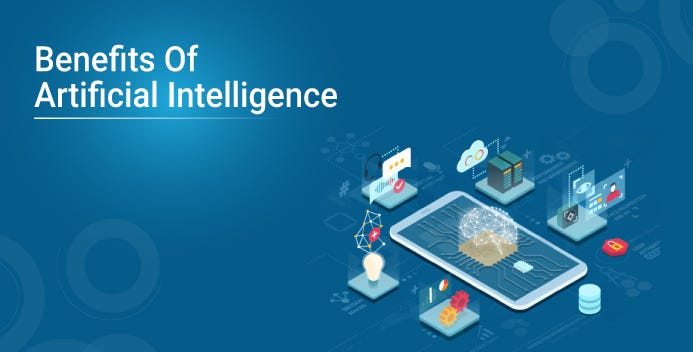Advantages and Disadvantages of Artificial Intelligence

Introduction
Advantages and Disadvantages of Artificial Intelligence (AI) is a new-age force that has transformed the world as we know it today. It can shape the way we work, engage, and decide. From business processes to healthcare processes, AI is transforming operations to make them intelligent and effective. It equips machines with human-like cognitive skills to think, execute difficult tasks, and learn during their lifetime.
But whereas AI has numerous potentialities, it also has its issues. Advantages and Disadvantages of Artificial Intelligence Issues like job loss, ethical issues, data privacy, and dependency are being debated more and more. Although AI is becoming more and more so, it is important to know both its potentialities and its limitations.
In this article, we will give you the net benefits and pitfalls of artificial intelligence. The balanced review will enable you to capitalize on AI’s plus while being aware of the dangers that need to be addressed in order to enjoy a long-term future.
What Is Artificial Intelligence?

Artificial Intelligence refers to the invention of computer software that is able to carry out activities which would otherwise necessitate human intelligence. Advantages and Disadvantages of Artificial Intelligence They consist of problem-solving, understanding of language, detection of patterns, and decision-making. AI predominantly comes in three manifestations:
Narrow AI (Weak AI): Developed to do a specific activity.
General AI (Strong AI): Able to comprehend and accomplish any intellectual task such as a human being.
Superintelligent AI: Advantages and Disadvantages of Artificial Intelligence A hypothetical scenario where machines are dramatically smarter than human intelligence in every way. AI is developed with domains like machine learning, deep learning, computer vision, and natural language processing, where systems are able to learn from experience and improve over time.
Benefits of Artificial Intelligence

1. Automation of Repetitive Tasks AI facilitates the automation of repetitive or normal procedures. This is done at enhanced speed and efficiency, particularly where situations are rule-based and sequential procedures are needed.
2. Greater Efficiency and Better Productivity AI computers have the ability to read and process data faster than a single human being. Advantages and Disadvantages of Artificial Intelligence This translates to greater productive workflow, faster results, and overall increased productivity in many industries.
3. Eradication of Errors and Ultra-High Accuracy AI computers will rarely make mistakes if well-programmed. Their accuracy enables more precise outputs, particularly where there is a need for high detail and precision.
4. Accessibility 24/7 They do not get fatigued and can work comfortably at any time of the day.Advantages and Disadvantages of Artificial Intelligence They are most suitable to work that demands constant concentration or constant accessability.
5. Improved Decision-Making Artificial intelligence facilitates data-driven decision-making through trend analysis, risk assessment, and suggesting most likely outcomes. It enables enterprises to take better, effective decisions.
6. Customer Experience and Personalization AI facilitates content and services to be personalized based on taste and behavior, resulting in a more interactive and personalized experience for the user.
7. Medical Breakthroughs AI is pioneering medical breakthroughs ranging from diagnosis and treatment design to managing patient information and enhancing outcomes.
8. Support for People with Disabilities People with disabilities are being enabled more with AI-powered solutions providing assistive technology for enhanced independence and inclusion.
9. Scientific Discovery and Innovation Scientific innovation and discovery are being boosted by AI across many sectors through the analysis of large data, unlocking new areas of knowledge and discovery.
10. Enhanced Security and Surveillance AI enhances surveillance, detects anomalies, and streamlines response time, resulting in enhanced safety and security protocols.
Drawbacks of Artificial Intelligence

1. Job Displacement and Unemployment Since human beings are allowing machines to perform the functions they used to carry out, most people fear that AI will result in job displacement, especially where the job is manual or repetitive.
2. High Implementation Costs Installation and development of AI systems are typically expensive.Advantages and Disadvantages of Artificial Intelligence Infrastructure, development, and maintenance charges may be too expensive for other companies to afford.
3. Inability to Be Creative or Emotionally Intelligent AI is incapable of being creative or empathetic. Even when it can replicate answers, it is unable to replicate human intuition or emotional intelligence correctly.
4. Data Privacy and Security AI systems rely on massive amounts of data, generating issues of data privacy and security of confidential data. Advantages and Disadvantages of Artificial Intelligence Poor data management results in breach and misuse.
5. Machine Over-reliance Over-dependence on AI can lead to diminished human interference and loss of critical thinking capacity. The dependence can cause individual judgment and problem-solving capacity to decline.
6. Ethical and Moral Issues Use of AI is sure to bring forth ethical concerns, e.g., bias in algorithms, justice, and accountability . Responsibility for AI decisions is unknown.
7. Lack of Transparency Some artificial intelligence, especially from advanced algorithms, are “black boxes” and have low transparency. They make decision-making process transparency unclear.
8. Malicious Use Risk Artificial intelligence may be utilized to apply wrongly for damaging ends, such as fraudulence, false information, and even weaponized conflict.Advantages and Disadvantages of Artificial Intelligence It poses a security threat and needs moral boundaries.
9. Gaps in Accessibility and Inequality Availability of AI technologies in the majority of instances is limited to wealthier countries or multinational corporations, thus creating opportunity, development, and technology inclusion gaps.
10. Environmental Impact Training and running large AI models consume a lot of computer power, which consequently increases the level of energy consumption and contributes to environmental degradation.
Balancing the Pros and Cons of AI

As we embrace AI, we have to be innovative and responsible. The steps mentioned below will see to it that development and deployment of AI benefit society at large:
1. Regulation and Governance There ought to be regulation that ensures AI is handled responsibly.Advantages and Disadvantages of Artificial Intelligence There should be policies promoting accountability, protecting user information, and restricting acceptable usage.
2. Human-Centered AI Development AI technologies must be used to augment human potential and not replace it. Human-machine collaboration can lead to better and ethical outcomes.
3. Education and Reskilling Schools and businesses will have to invest in upskilling and reskilling initiatives to offset job displacement. Lifelong learning will be the new standard in the AI-driven employment economy.
4. Inclusive Access There should be a move towards providing AI to underserved and underrepresented populations. Advantages and Disadvantages of Artificial IntelligenceThis would mean offering low-cost infrastructure, tools, and training programs to these groups.
5. Ethical AI Frameworks Strict ethical standards have to be observed by developers and organizations when building AI systems. There should be transparency, fairness, and accountability during development.
Conclusion
Artificial Intelligence is certainly redefining the future. Its potential to bring about change, mechanize, and bring in better standards of living is gigantic.Advantages and Disadvantages of Artificial Intelligence But its drawbacks cannot be ignored. Ethics, privacy issues, job opportunities, and access issues must be addressed through effective and cautious control.
By encouraging responsible AI development and stakeholder cooperation, we can optimize the good of AI and reduce harms. As policymaker, developer, business leader, or consumer, it is your responsibility as an individual to value both AI’s potential and limitations in trying to use it for maximum and ethical good.






